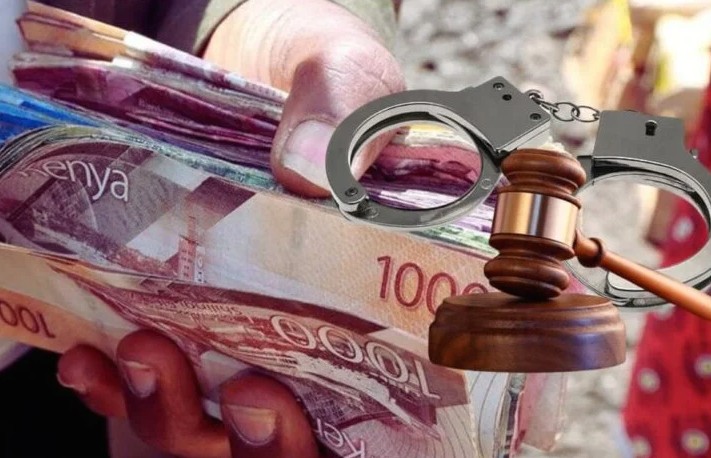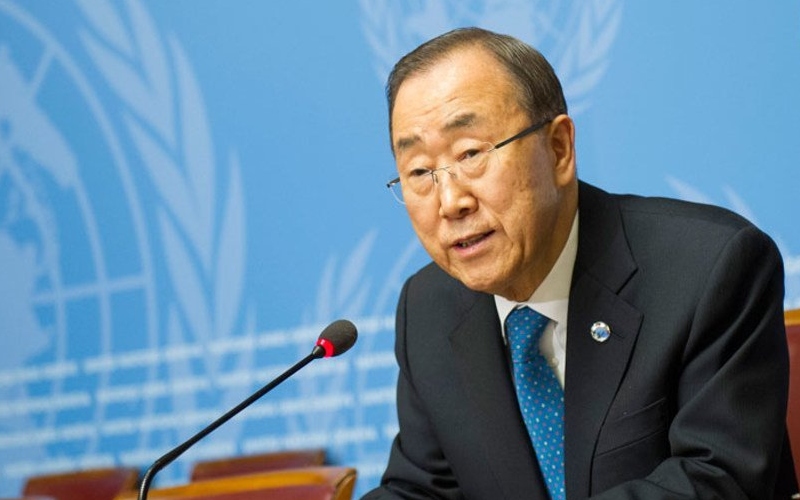Gaming in Kenya linked to money laundering, terror financing - report

The annual report tabled before parliament further notes that this is worsened by advancement in technology that further complicates the traceability of culprits.
A government report has linked gaming to money laundering and terrorism.
The annual report tabled before parliament further notes that this is worsened by advancement in technology that further complicates the traceability of culprits.
More To Read
- YouTube to age-restrict violent gaming videos under new policy
- Explore earth in 2100: New online game lets you imagine the future
- Reprieve for Mike Sonko as court orders release of Sh537 million frozen by Asset Recovery Agency
- Sony's PlayStation launches new app for parental controls
- Microsoft: Cheaper Xbox Cloud gaming plan will soon be available for users
- Kenya records surge in cybercrime with 82 per cent targeted, gaming sector most hit - report
The growth of gaming in Kenya has been propelled mainly by increasing societal acceptance as being a form of recreation by the allure of instant material benefits on the part of participants, and by raising significant tax revenues for the country.
"This increased participation in gaming comes with social costs and other risks that include family breakdowns, cases of suicide, mental health and bankruptcy which have a bearing on national security," the report states.
It further notes that gaming in Kenya is twofold; the licit that is licensed and fully regulated by authorities and the illegal gaming that has become of increasing concern.
"Illegal gaming denies revenue to Government in contrast to the amount of cash the industry makes and is closely associated with other serious criminal activities such as money laundering and terrorism," the report says.
Some of the gaming machines are produced locally enabling widespread access to gaming activities.
The risk of this is that underage children are now able to access them, thus getting distracted from the needed core focus on learning.
Illegal gaming websites
At the same time, the games have gone online with the report noting that the new frontier of the industry has been the proliferation of illegal gaming websites in the country which poses a new risk to online users, including punters, who are enticed to participate in unlicensed off-shore gaming platforms.
"These illegal activities have been known to create regulatory challenges, security and social concerns like gambling addiction, idleness and crime, thereby compromising public safety and security at community levels, besides the risk of heightening other wider level societal problems," the report says.
With reports elsewhere linking online gaming to online radicalisation and pornography, the government has expressed alarm that rapid technological advancements in the industry complicate the traceability of criminal activities and perpetrators.
Amongst adults, this increased participation in gaming has been linked to social costs and other risks amongst them; family breakdowns, suicide, mental health issues and bankruptcy which the report says have a bearing on national security.
As a prevention measure and in collaboration with the Financial Reporting Centre, will increase its collaboration with social media platforms and mobile money service providers to close illegal Paybill numbers, in addition to legal action being taken against all identified unlicensed local and foreign gaming websites and platforms.
The report says continuous crackdown on illegal operators of gaming machines and online operators will continue in addition to enhanced whole-of-government and multi-agency collaboration as well as other regulatory actions on gaming that could impact national security.
"Going forward, the government will continue taking measures that ensure any form of gaming does not compromise national security," the report adds.
Plans are also underway to convert integrated companies operating online gaming activities to real-time tax remittance systems.
To combat the social ills and other risks associated with gaming, the Government has institutionalised stringent conditions whereby all licensed casino operators must register their gaming companies with the Financial Reporting Centre (FRC).
"Consequently, the Government commits to strictly enforce gaming regulations to debar vulnerable and underage youths from participating in illegal gaming activities; fast-tracking the finalisation of the Gaming Bill, as well as training of gaming personnel to enhance enforcement of gaming laws and regulations," it adds.
In other countries like France, a study by its Financial Action Taskforce revealed that commercial websites and Internet payment systems bear vulnerabilities such as non face-to-face registration, possible anonymity of the users, speed of transactions, limited human intervention, high number of transactions, international presence, limited jurisdictional competences, difficulties for traditional financial institutions to monitor and detect suspicious financial transactions.
The report found that some commercial websites and Internet payment systems also had direct links with arms trafficking, sale of drugs and counterfeit goods.
Top Stories Today











































